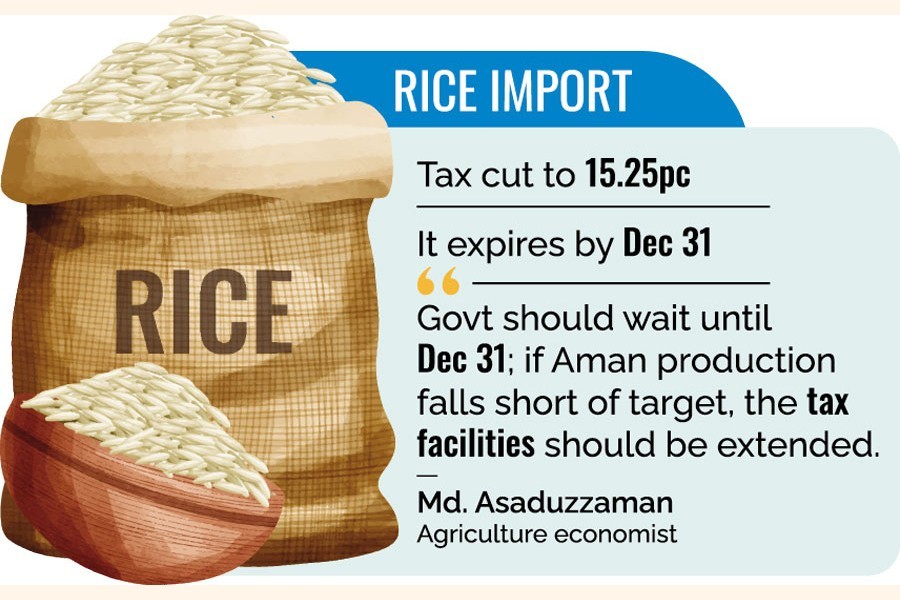Bangladesh may extend the tax benefit for import of rice by three months until March to contain price rises of the staple, particularly in the lean period before next harvest.
Officials say the contingency plan is under consideration as global prices of the staple grain surged, putting in difficulty the importers to meet their import target by this month-end.
The pared-down tax on import of rice is scheduled to expire this month, by December 31, with imports far below the mark and government procurement internally also falling short.
The National Board of Revenue (NBR) has received requests from the relevant ministries to prolong the tax bait further to cool off the volatile food market, seen as a manifest of agflation.
This year, the government cut import taxes on rice in two phases, from a prohibitive 62.5 per cent down to 15.25 per cent.
In the first phase, the tax benefit was given until October 31, 2022, and later extended until December 31.
Official sources say a move is on to extend the tax benefit further to facilitate import of rice and ensure uninterrupted supply of rice to the consumers-incidentally, in the wake of a global prognosis.
A recent monthly report of the Food and Agriculture Organization (FAO) said the current rice prices are 14.7-percent higher than those a year ago.
Currently, import of rice is required 5.0-percent regulatory duty, 5.0-percent advance tax and 5.0-percent advance income tax.
As per NBR order, importers must obtain permission from the food ministry to import rice by paying the cut-down duty.
Rice prices jumped by up to Tk 12 a kg on the local market during the peak harvesting season of Aman, according to the Trading Corporation of Bangladesh (TCB) and local market prices, amid high prices of most consumer goods.
Agriculture economist and former Research Director of Bangladesh Institute of Development Studies (BIDS) Md Asaduzzaman suggests that the government wait until end of December before extending the facility for the sake of farmers.
He says the government should take the decision based on production output of Aman.
"If production of Aman fell short of target, then the import-tax facility should be extended further, otherwise the decision would affect the farmers," he adds.
He notes that cost of production of the staple went up in recent times so farmers would expect higher prices of the grains.
Officials of the food ministry could not be reached for their comment as regards food-stock situation and import option.


